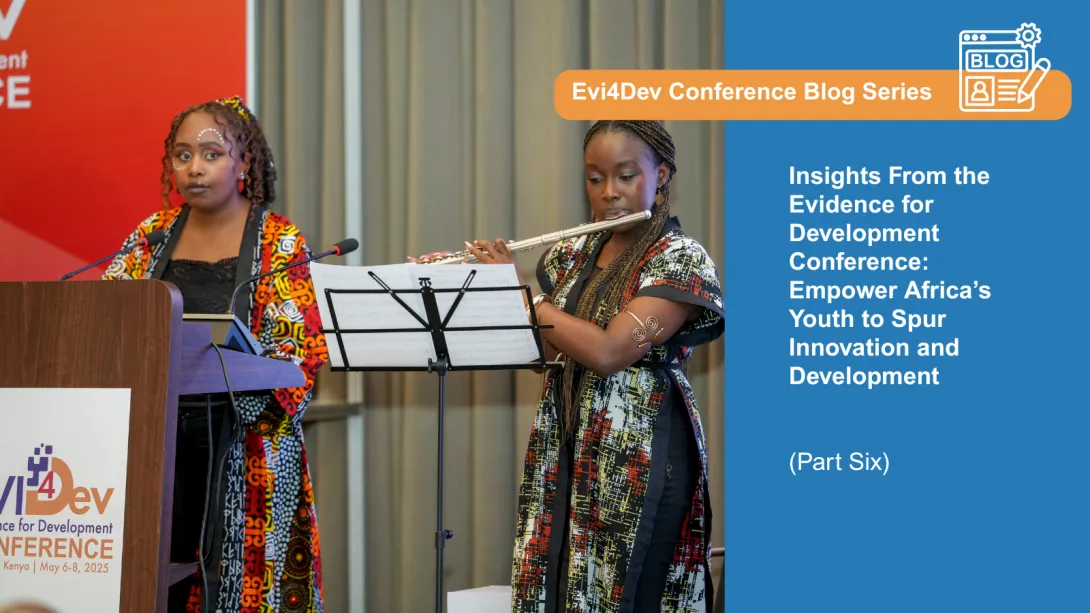
By Derick Ngaira
Africa is a continent bursting with youthful energy and immense potential. With over 60% of its population under the age of 25, the youth represent not only the future but also the present drivers of change, innovation, and progress. The Evidence for Development (Evi4Dev) Conference, held in May 2025, underscored the urgent need to foster youth innovation and ensure their meaningful participation in science, technology, and evidence-informed decision-making processes across the continent.
In Africa, youth are active agents of change who bring fresh ideas, creativity, and passion to tackle Africa’s most pressing development challenges. However, despite this potential, many young Africans face structural barriers that limit their ability to contribute fully. Education systems often lag behind in equipping youth with relevant skills for today’s rapidly evolving economies. Policies often fail to reflect their needs or aspirations because they are on the periphery of decision-making processes. Despite their creativity and potential, they face major hurdles—access to funding is scarce, mentorship opportunities are limited, and there are few platforms where they can showcase and scale their innovations.
There is an urgent need for countries across Africa to recognise these gaps and take decisive steps to address them. This includes redesigning youth policies and education systems to align with Africa’s long-term development frameworks, such as Agenda 2063. The goal should be to equip young people not just with knowledge, but with entrepreneurial skills and a mindset oriented towards wealth creation and sustainable development. Preparing youth for the future demands fostering creativity, problem-solving, and resilience.
Moreover, collaboration between governments and the private sector is crucial in creating pathways for youth innovation. Establishing innovation hubs, joint initiatives, and funding mechanisms focused on youth-led solutions can help bridge the gap between bright ideas and real-world impact. Local industries should be actively engaged in nurturing young innovators, providing them with opportunities to test, refine, and scale their innovations. This approach can drive inclusive growth while addressing local challenges with relevant solutions.
Academia also has a pivotal role in this ecosystem. By promoting open access to research on youth empowerment and innovation, universities can ensure that policymakers, practitioners, and young entrepreneurs have the evidence they need to craft effective interventions. Sharing knowledge widely fosters a culture of informed decision-making and strengthens the link between research and practice.
Importantly, youth must be involved as active contributors in policymaking and programme implementation. This means going beyond tokenism to ensure young people’s voices and perspectives genuinely shape development agendas. They should participate meaningfully in data collection and analysis to inform evidence-based policies that truly reflect their realities and aspirations.
The ingenuity of Africa’s youth offers a tremendous opportunity to accelerate the continent’s development. What is required is the commitment from governments, private sector actors, academia, and development partners to support these talents fully. By creating enabling environments, fostering equitable partnerships, and amplifying youth voices, Africa can unlock the transformative power of its young innovators. In doing so, the continent will not only secure a prosperous and sustainable future but also become a global leader in inclusive innovation and evidence-informed development.
The final part of the blog series will focus on the need to advance equity and inclusion in Africa’s development through science, data and innovation.

